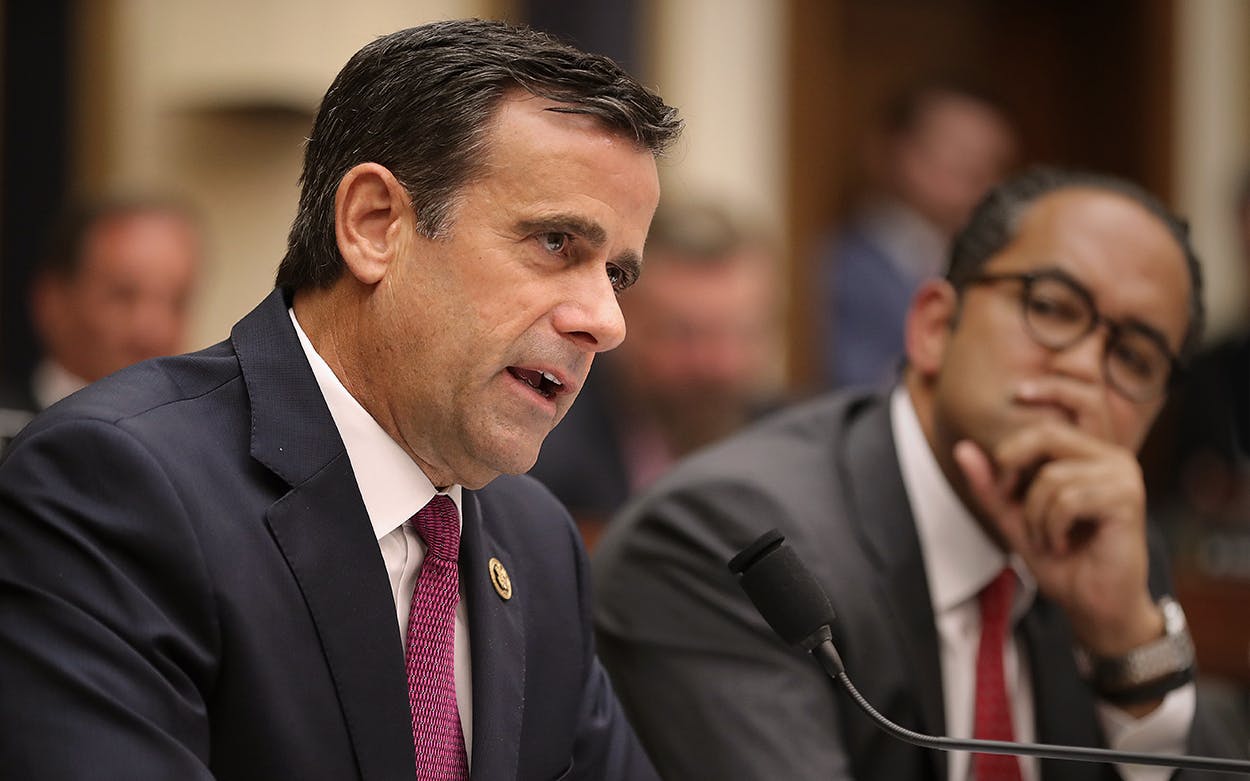John Ratcliffe started this week with the prospect of a big promotion. President Donald Trump tapped the North Texas congressman as the next director of national intelligence. Only six months into his third term, the GOP lawmaker was a surprising pick to replace former congressman, ambassador, and senator Dan Coats as the nation’s top spy.
While Ratcliffe’s potential ascension wasn’t a complete shock—despite his brief tenure in D.C., he’d previously been shortlisted for the attorney general job that eventually went to William Barr, and in 2012 had served on the prospective transition team for GOP presidential nominee Mitt Romney—his thin credentials made headlines and aroused suspicions. And by Friday afternoon, it was all over, as announced by Trump in a pair of tweets.
….John has therefore decided to stay in Congress where he has done such an outstanding job representing the people of Texas, and our Country. I will be announcing my nomination for DNI shortly.
— Donald J. Trump (@realDonaldTrump) August 2, 2019
The “unfair” treatment Trump refers to mostly focuses on Ratcliffe’s statement that he’d “put terrorists in prison” as U.S. attorney for the Eastern District of Texas. That was challenged by Justice Department officials, who told reporters that he had never prosecuted a terrorism case during his tenure in that office. His further claim to have been appointed “chief of anti-terrorism and national security in the Eastern District of Texas” came under suspicion as well—as no such role exists. (Though Ratcliffe did take on administrative duties as a coordinator of the Anti-Terrorism Advisory Council.)
Critics also expressed concerns about how Ratcliffe’s politics might influence his interpretation of intelligence. Former CIA analyst Ned Price, a Dallas native, told Slate earlier this week that he was concerned that Ratcliffe’s staunch support of Trump could outweigh the sort of balanced consideration of politically inconvenient intelligence that had frustrated the president about Dan Coats. “[M]y concern is Ratcliffe would see this job as protecting and defending Donald Trump, the Constitution be damned,” Price said. “And I think the tools at his disposal, chiefly, classification and declassification, along with ready access to the president on a near daily basis, could be a very dangerous combination when it comes to someone like this as director of national intelligence.”
Coats, a lifelong Republican appointed by Trump, broke with the president’s favored narrative concerning key foreign policy issues—namely, the continued nuclear threat posed by North Korea and the role of Russian interference in the 2016 election. Ratcliffe, meanwhile, had been an advocate for the president’s worldview, appearing on Fox News in 2018 to suggest that the FBI had slanted its evidence against Trump in the Russia probe. More recently, he attacked former special counsel Robert Mueller during a House Intelligence Committee hearing as having “managed to violate every principle and the most sacred of traditions about prosecutors” during his investigation into the president.
Having to answer questions about alleged embellishments to his résumé, as well respond to charges that he might view critical national security information through the lens of whether it’ll make his boss happy, would have no doubt made for a difficult confirmation process for Ratcliffe. According to the congressman’s own Friday afternoon tweet dump, he wished to spare the country that spectacle:
https://twitter.com/RepRatcliffe/status/1157354812834570240
It’s possible that during a Senate confirmation hearing, the congressman would have been prepared to explain that, in fact, he had prosecuted terror cases of which his former colleagues at the Department of Justice were unaware. He also might have successfully quelled fears that his elevation to the critical DNI role was only coming because of his loyalty to the president and have assured senators that he intended to treat intelligence matters much as Coats had.
It’s possible. But we’ll never have the chance to find out.
- More About:
- Politics & Policy








